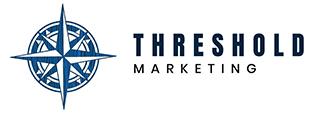Job security used to mean staying with one company until retirement. Now, it means staying competitive, valuable, and ready for change. In an era shaped by automation, industry disruptions, and unpredictable markets, professionals must think beyond job titles and focus on building lasting, adaptable careers.
The real question isn’t just about keeping your job—it’s about staying essential in a rapidly evolving workforce. From new graduates to seasoned professionals, everyone is looking for answers.
This blog unpacks job security, why it matters now more than ever, and how you can create a career that weathers economic storms and technological shifts.
Defining Job Security: It’s More Than Just Keeping a Job
Job security is often misunderstood as not getting fired. But in reality, it’s about long-term employability—the ability to remain relevant, needed, and marketable regardless of changes in your company, industry, or the economy. It assures that your skills and experience will continue to open doors, even if one closes.
Proper job security means adapting and thriving when roles evolve, or industries shift. It involves positioning yourself as someone who contributes value, solves problems, and learns quickly. In short, job security isn’t tied to one position but to your ability to grow with the market.
- Modern job security means staying relevant and employable, not just staying employed.
- It involves having multiple options if one job ends.
- It’s the confidence that your career won’t disappear overnight due to automation, outsourcing, or industry collapse.
Today, security comes from knowing how to pivot, re-skill, and remain essential.
Why Job Security Is Harder to Find in Today’s Economy
The definition of a “secure job” has changed dramatically. Roles once viewed as dependable are now vulnerable to disruption from rapid technological advancements and unpredictable market shifts. Trust in long-term employment is no longer guaranteed, even for top performers.
- Automation and AI are replacing tasks at an unprecedented rate, reducing the need for human labor in routine roles.
- Global outsourcing has increased competition by expanding the talent pool and pushing companies to seek cost-effective labor abroad.
- Gig work has become mainstream, offering flexibility but sacrificing traditional employment’s long-term stability and benefits.
- Industry layoffs now reach all levels, including experienced employees, as companies restructure frequently to stay agile.
Signs a Career Offers Long-Term Stability
Even within strong industries, not every role is built to last. To make informed decisions about your career path, it’s essential to understand the traits of roles built for the long haul. Below are some clear indicators that a role is likely to provide lasting career stability:
- High and Steady Demand: Jobs that remain consistently needed across multiple regions and industries offer greater security. The role will likely remain stable if the demand holds firm regardless of economic conditions.
- Low Likelihood of Automation: Careers that involve emotional intelligence, nuanced decision-making, or physical dexterity are more resistant to automation. These roles require human input that machines can’t replicate.
- Credentials or Certifications Required: When a role demands formal training, licensing, or education, it raises the barrier to entry. This exclusivity often translates to fewer competitors and more job security.
- Essential Community Services: Positions tied to vital services—like healthcare, utilities, education, or public safety—are critical to society and continue to operate even in economic downturns.
- Clear Advancement Paths: A role with defined levels of growth or specialization offers flexibility and career progression. It allows you to expand your responsibilities and adapt within the same field.
- Workforce Development Investments: Companies that provide training, mentorship, or tuition support show interest in long-term employee success and internal retention.
- Positive Industry Outlook: Look for industries projected to grow steadily over the next decade. A healthy industry pipeline means more opportunities and less fear of redundancy.
Careers With the Best Job Security
Some industries continue to grow despite economic changes. These careers offer long-term prospects due to demand, specialization, or resistance to automation. Here are several fields that stand out as reliable choices for long-term employment and professional growth:
- Sales: Sales professionals play a critical role in driving revenue and sustaining business growth across virtually every industry. Companies rely on skilled sales professionals to maintain and expand their customer base, making top performers highly valuable and often among the last to be let go during economic downturns. Sales skills are also highly transferable, allowing professionals to pivot between industries with relative ease.
- Healthcare: Nurses, doctors, physical therapists, and mental health professionals are essential for public health and operate in roles that require personal interaction, empathy, and decision-making that technology can’t replace. The aging population and growing mental health awareness further increase demand.
- Skilled Trades: Electricians, plumbers, HVAC technicians, and mechanics perform hands-on work that is resistant to automation and outsourcing. With many aging workers retiring, these trades also face a labor shortage, making them highly secure.
- Education: Teachers, academic advisors, and school administrators shape the next generation and provide a vital service in every community. Education careers typically offer structured paths, strong union support, and long-term growth potential.
- Cybersecurity and IT Roles: As data breaches and cyber threats rise, cybersecurity and IT professionals are increasingly indispensable. These roles offer high pay, evolving challenges, and demand across nearly every industry.
- Government Positions: Public service jobs provide structure, benefits, and protections rarely found in the private sector. From policy to public works, these roles support critical infrastructure and are often recession-resistant.
- Renewable Energy: Solar panel installers, wind turbine technicians, and energy efficiency specialists fuel a growing industry. With global sustainability goals in focus, this sector offers future-proof roles tied to long-term global initiatives.
- Logistics and Supply Chain Professionals: This workforce keeps the global economy running, from warehouse managers to freight coordinators. The rise in e-commerce and international trade makes these roles crucial for timely delivery and resource management.
Habits and Skills That Contribute to Personal Job Security
Your career path is only one part of the equation regarding job security. Equally important is how you show up daily—how you grow, adapt, and bring value to the table. These personal habits and skills act as your safety net, no matter where you work or what changes come your way. Here are the key habits and traits that can help make you irreplaceable:
- Transferable Soft Skills: Communication, problem-solving, adaptability, and collaboration skills apply across all industries. Employers value individuals who can navigate challenges, work well with others, and adjust quickly to change.
- Lifelong Learning Mindset: A willingness to learn ensures you stay ahead of industry trends and evolving technologies. Whether enrolling in an online course or mastering a new tool, continuous learning shows initiative and future readiness.
- Strong Professional Network: Building and maintaining professional relationships opens doors to new opportunities, mentorship, and support. A solid network can also be a valuable safety net during career transitions.
- Initiative and Problem-Solving: Employees who take ownership and find solutions without waiting to be asked to stand out. These traits demonstrate leadership potential and a proactive attitude that companies rely on.
- Staying Current With Industry Tools: Being familiar with your field’s latest software, tools, or methodologies helps you remain competitive. Staying updated ensures you’re contributing relevant, high-quality work.
- Personal Branding: A professional online presence—especially on platforms like LinkedIn—helps showcase your skills, achievements, and industry insights and keeps you visible to recruiters and decision-makers.
- Resilience and Emotional Intelligence: Navigating stress, change, and uncertainty gracefully is a key differentiator. Employers look for emotionally intelligent team members who uplift others and maintain productivity under pressure.
The Role of Company Culture and Leadership in Career Stability
Even in stable industries, the culture and leadership of your workplace can make or break your sense of job security. A supportive environment led by transparent, forward-thinking leaders inspires confidence, encourages growth, and helps employees feel invested in the organization’s future. On the other hand, poor leadership or a toxic culture can erode morale and create instability, regardless of the industry.
When you evaluate a role, look beyond the job description. Companies that promote mentorship, invest in training, and communicate are often more stable. A positive culture boosts daily work satisfaction and strengthens long-term team performance and retention. If career stability is your goal, assess how the company supports and leads its people.
The Future of Job Security: What Professionals Should Expect
Job security is no longer defined by holding the same role for decades—it now depends on how well you can adapt to what’s next. The future of work will favor those who embrace change, build cross-functional strengths, and consistently evolve their skill set. Here’s what professionals should expect and prepare for in the years ahead:
- Hybrid Roles: Positions that blend technical know-how with human interaction will dominate. Professionals merging data literacy with communication, leadership, or creativity will remain indispensable.
- Cross-Functional Expertise: The more versatile you are, the more valuable you become. Individuals who can move fluidly between departments—like marketers who know code or project managers who understand UX—will thrive.
- AI-Driven Job Evolution: Artificial intelligence will continue to automate tasks, but it will also create roles focused on managing, interpreting, and improving systems. The ability to work alongside AI—not be replaced by it—will define secure careers.
- Continuous Learning: The most employable professionals are those who see learning as a lifelong habit. Micro-credentials, short courses, and hands-on upskilling will keep you ahead of rapid industry changes.
- Human-Centric Skills: Empathy, leadership, adaptability, and creativity aren’t automated. These qualities will grow even more essential as technology takes on repetitive work.
Build Career Stability With Threshold Marketing
Long-term job security isn’t about luck—it’s about being prepared, adaptable, and future-focused. In a world full of evolving industries and shifting expectations, those who invest in the right skills and remain open to growth are the ones who stay ahead. Whether entering the workforce or considering a career pivot, taking control of your path is the key to absolute stability.
Surrounding yourself with the right team can make all the difference. At Threshold Marketing, we prioritize people. Our culture is designed to help you grow professionally while giving you the tools to lead with confidence. We believe in promoting from within, recognizing potential, and creating opportunities for driven individuals to thrive long-term.
Take the first step toward a secure future. Join Threshold Marketing today and build something that lasts.

